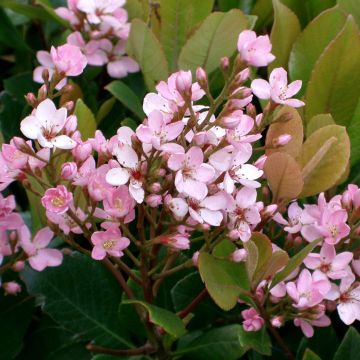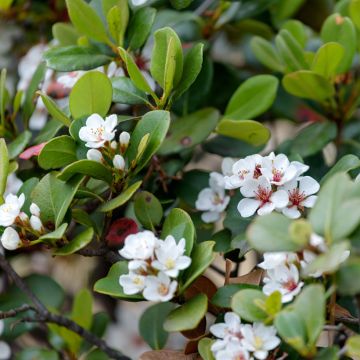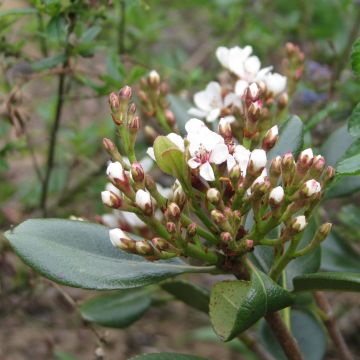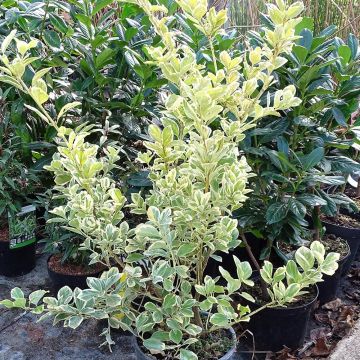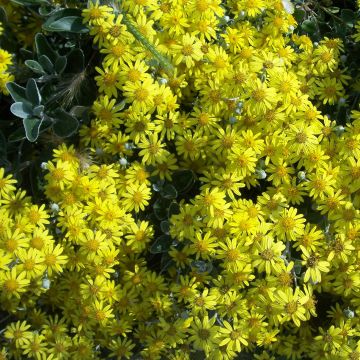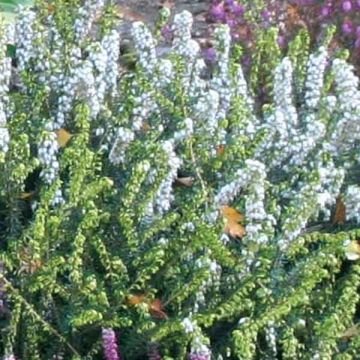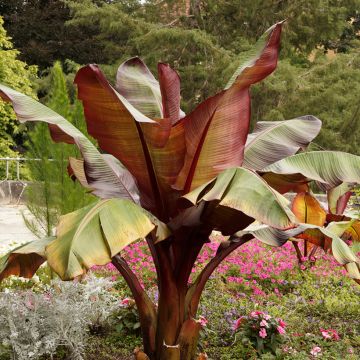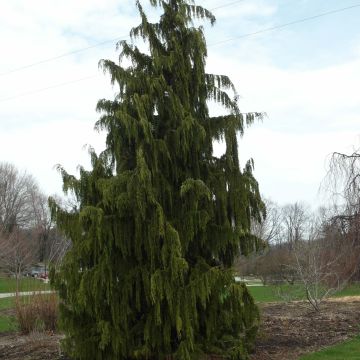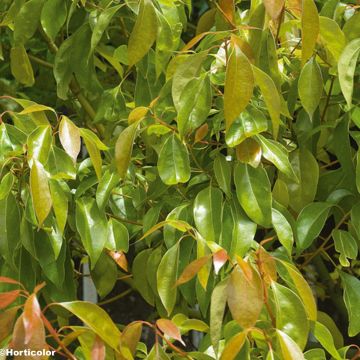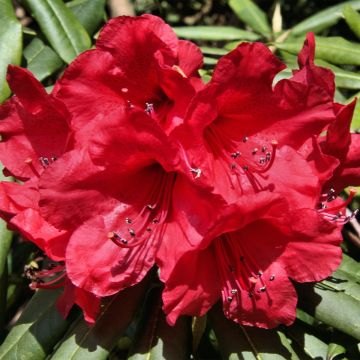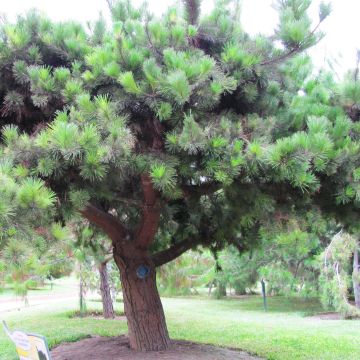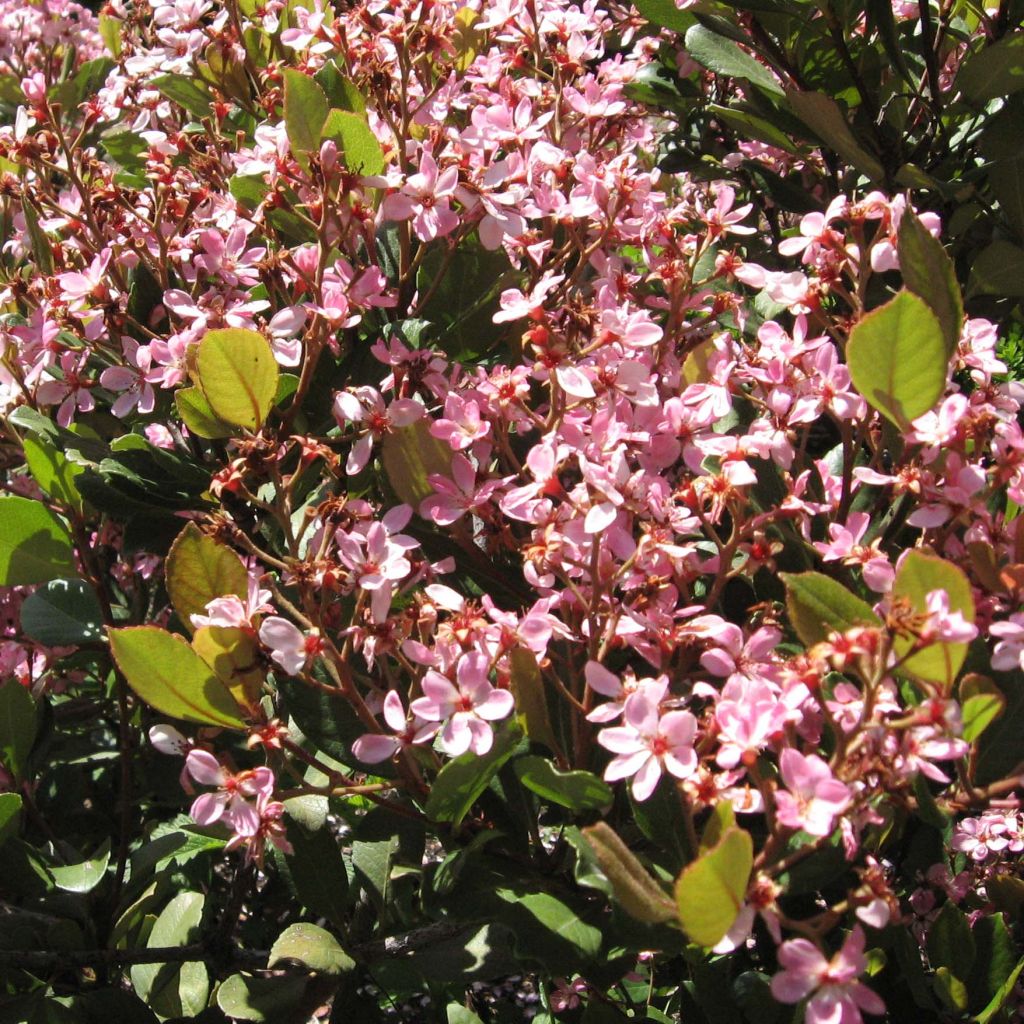

Rhaphiolepis indica Springtime
Rhaphiolepis indica Springtime
Rhaphiolepis indica Spring Time
Indian Hawthorn
Almost one year old and good shoot. Beautiful flowers very pleasant to look at. Placed in a large flowerpot without worries.
Frederic, 12/05/2021
Special offer!
Receive a €20 voucher for any order over €90 (excluding delivery costs, credit notes, and plastic-free options)!
1- Add your favorite plants to your cart.
2- Once you have reached €90, confirm your order (you can even choose the delivery date!).
3- As soon as your order is shipped, you will receive an email containing your voucher code, valid for 3 months (90 days).
Your voucher is unique and can only be used once, for any order with a minimum value of €20, excluding delivery costs.
Can be combined with other current offers, non-divisible and non-refundable.
Why not try an alternative variety in stock?
View all →This plant carries a 24 months recovery warranty
More information
We guarantee the quality of our plants for a full growing cycle, and will replace at our expense any plant that fails to recover under normal climatic and planting conditions.

Would this plant suit my garden?
Set up your Plantfit profile →
Description
Rhaphiolepis indica Springtime, often called Raphiolepis delacourii Springtime, is a small evergreen bush that is absolutely charming, but has slow growth, mediocre hardiness, and a proven sensitivity to limestone and moisture. However, it can withstand temperatures as low as -10°C (14°F) when well-established and can tolerate periods of drought, which explains why it is often planted in Mediterranean gardens. Not very tall, highly branched, with a rounded silhouette and a clean appearance, it blooms abundantly in late spring, with paniculate clusters which are a very fresh pink colour above a dome of foliage where the dark green of mature leaves and the bronze-pink of young shoots blend together. It is a valuable bush for dry gardens, which are often lacking flowers in summer. Its modest size and true elegance make it an excellent subject for the patio, protected from heavy frost in cold regions.
Raphiolepis delacourii is a horticultural creation born in France in 1896, not far from Cannes. It is the result of cross-breeding between R.indica, also known as Indian Hawthorn, native to southern China, and R.umbellata, native to Japan and Korea. These two slightly tender species, originating from warm and relatively dry regions of the Far East, are perfectly adapted to Mediterranean, southern Atlantic, or southern climates.
The 'Springtime' variety is an American selection with a compact habit and candy pink flowers. This bush naturally has a regular and rounded habit. It slowly reaches a size of 1.50m (5ft) in all directions. Its evergreen foliage consists of coriaceous, entire, elliptical leaves that are relatively narrow and pointed. They measure 6 to 7cm (2 to 3in) in length, have a smooth margin at the base, and the upper part is finely toothed. They emerge as coppery bronze buds and covered with white pubescence in spring, then turn a beautiful shiny dark green in summer before becoming red at the end of their life. The young branches are reddish-brown. This harmony of colours creates an interesting bush throughout the year. The flowering takes place from March-April to July, depending on the climate, reaching its peak in spring. At the end of each branching, reddish clusters of about ten small star-shaped flowers with ten oval petals, 2.5 to 3cm (1in) wide, are born. These pink flowers are enclosed in a pubescent calyx tinged with pink-red and carried by purple peduncles. The flowering is followed by the formation of small ovoid berries, less than 1cm (0.5in) in size, which are red and then turn blue-black when ripe, persisting for a long time on the branches. Fresh seeds germinate very easily and quickly, within 8 days.
Rhaphiolepis Springtime is a perfectly rounded bush, well-groomed, floriferous, colourful, and absolutely delightful. If your climate and soil allow it, plant it in a bed or a small hedge, but also on a sheltered and sunny patio. While it dislikes excessive limestone in the soil, icy winds, and cold winters, it does not fear heat or dry summers once established and can even bloom in semi-shady conditions. It is useful in coastal gardens, as its flowering, like that of Olearias and Escallonia, brightens the grey foliage of Atriplex, Bupleurum fruticosum, or Correa alba rosea, for example. In a large bed, it can be combined with cistus, lavender, Hebe, or early-flowering bushes such as lilacs (Syringa microphylla Superba), Kolkwitzia amabilis, Leptospermum, or Melaleuca. It adapts quite well to being grown in a large pot, which can be stored frost-free in winter.
Report an error about the product description
Rhaphiolepis indica Springtime in pictures
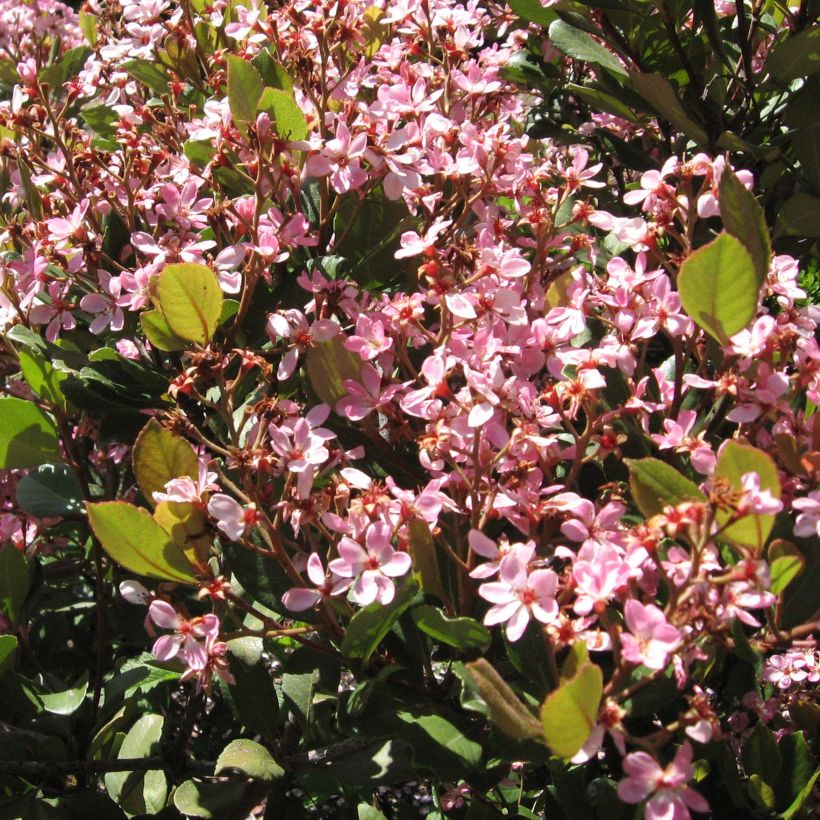

Plant habit
Flowering
Foliage
Botanical data
Rhaphiolepis
indica
Spring Time
Rosaceae
Indian Hawthorn
Cultivar or hybrid
Other Rhaphiolepis
View all →Planting and care
Raphiolepis Springtime is preferably planted in spring, or in autumn in very mild climates. Its growth is slow, but it lives for many years in the garden. It requires well-drained soil, prefers it to remain moist, but tolerates drought once well established. An acidic, neutral, or even slightly clay and calcareous soil will be suitable, as long as it is well worked and amended with coarse sand and leaf compost. Choose a sheltered and warm location, protected from cold and dry winds. It blooms more abundantly in the sun, but tolerates semi-shaded exposures, especially in hot climates. Once well established, it requires no watering in summer, even in dry climates. It can withstand sea spray but not cold winter winds. Apply a rose fertilizer in spring if your soil is very poor. It dislikes heavy soils and and waterlogging, especially in winter. If the soil is too heavy and calcareous, it may suffer from chlorosis. Raphiolepis delacourii does not appreciate excessively humid climates, which make it susceptible to a fungal disease called Entomosporiosis, responsible for the appearance of reddish-brown leaf spots that are necroses. Therefore, it is more suitable to cultivate it in Mediterranean or southern Atlantic climates, which are less humid. In cold regions, plant it in pots and store it indoors during winter to protect it from severe frosts.
Perform light pruning just after spring flowering to remove faded flowers. Carefully remove fallen dry leaves from the ground around the bush and burn them to limit the proliferation of the fungal disease called Entomosporiosis, which is particularly problematic in wet climates.
Planting period
Intended location
Care
-
, onOrder confirmed
Reply from on Promesse de fleurs
Similar products
Haven't found what you were looking for?
Hardiness is the lowest winter temperature a plant can endure without suffering serious damage or even dying. However, hardiness is affected by location (a sheltered area, such as a patio), protection (winter cover) and soil type (hardiness is improved by well-drained soil).

Photo Sharing Terms & Conditions
In order to encourage gardeners to interact and share their experiences, Promesse de fleurs offers various media enabling content to be uploaded onto its Site - in particular via the ‘Photo sharing’ module.
The User agrees to refrain from:
- Posting any content that is illegal, prejudicial, insulting, racist, inciteful to hatred, revisionist, contrary to public decency, that infringes on privacy or on the privacy rights of third parties, in particular the publicity rights of persons and goods, intellectual property rights, or the right to privacy.
- Submitting content on behalf of a third party;
- Impersonate the identity of a third party and/or publish any personal information about a third party;
In general, the User undertakes to refrain from any unethical behaviour.
All Content (in particular text, comments, files, images, photos, videos, creative works, etc.), which may be subject to property or intellectual property rights, image or other private rights, shall remain the property of the User, subject to the limited rights granted by the terms of the licence granted by Promesse de fleurs as stated below. Users are at liberty to publish or not to publish such Content on the Site, notably via the ‘Photo Sharing’ facility, and accept that this Content shall be made public and freely accessible, notably on the Internet.
Users further acknowledge, undertake to have ,and guarantee that they hold all necessary rights and permissions to publish such material on the Site, in particular with regard to the legislation in force pertaining to any privacy, property, intellectual property, image, or contractual rights, or rights of any other nature. By publishing such Content on the Site, Users acknowledge accepting full liability as publishers of the Content within the meaning of the law, and grant Promesse de fleurs, free of charge, an inclusive, worldwide licence for the said Content for the entire duration of its publication, including all reproduction, representation, up/downloading, displaying, performing, transmission, and storage rights.
Users also grant permission for their name to be linked to the Content and accept that this link may not always be made available.
By engaging in posting material, Users consent to their Content becoming automatically accessible on the Internet, in particular on other sites and/or blogs and/or web pages of the Promesse de fleurs site, including in particular social pages and the Promesse de fleurs catalogue.
Users may secure the removal of entrusted content free of charge by issuing a simple request via our contact form.
The flowering period indicated on our website applies to countries and regions located in USDA zone 8 (France, the United Kingdom, Ireland, the Netherlands, etc.)
It will vary according to where you live:
- In zones 9 to 10 (Italy, Spain, Greece, etc.), flowering will occur about 2 to 4 weeks earlier.
- In zones 6 to 7 (Germany, Poland, Slovenia, and lower mountainous regions), flowering will be delayed by 2 to 3 weeks.
- In zone 5 (Central Europe, Scandinavia), blooming will be delayed by 3 to 5 weeks.
In temperate climates, pruning of spring-flowering shrubs (forsythia, spireas, etc.) should be done just after flowering.
Pruning of summer-flowering shrubs (Indian Lilac, Perovskia, etc.) can be done in winter or spring.
In cold regions as well as with frost-sensitive plants, avoid pruning too early when severe frosts may still occur.
The planting period indicated on our website applies to countries and regions located in USDA zone 8 (France, United Kingdom, Ireland, Netherlands).
It will vary according to where you live:
- In Mediterranean zones (Marseille, Madrid, Milan, etc.), autumn and winter are the best planting periods.
- In continental zones (Strasbourg, Munich, Vienna, etc.), delay planting by 2 to 3 weeks in spring and bring it forward by 2 to 4 weeks in autumn.
- In mountainous regions (the Alps, Pyrenees, Carpathians, etc.), it is best to plant in late spring (May-June) or late summer (August-September).
The harvesting period indicated on our website applies to countries and regions in USDA zone 8 (France, England, Ireland, the Netherlands).
In colder areas (Scandinavia, Poland, Austria...) fruit and vegetable harvests are likely to be delayed by 3-4 weeks.
In warmer areas (Italy, Spain, Greece, etc.), harvesting will probably take place earlier, depending on weather conditions.
The sowing periods indicated on our website apply to countries and regions within USDA Zone 8 (France, UK, Ireland, Netherlands).
In colder areas (Scandinavia, Poland, Austria...), delay any outdoor sowing by 3-4 weeks, or sow under glass.
In warmer climes (Italy, Spain, Greece, etc.), bring outdoor sowing forward by a few weeks.






























